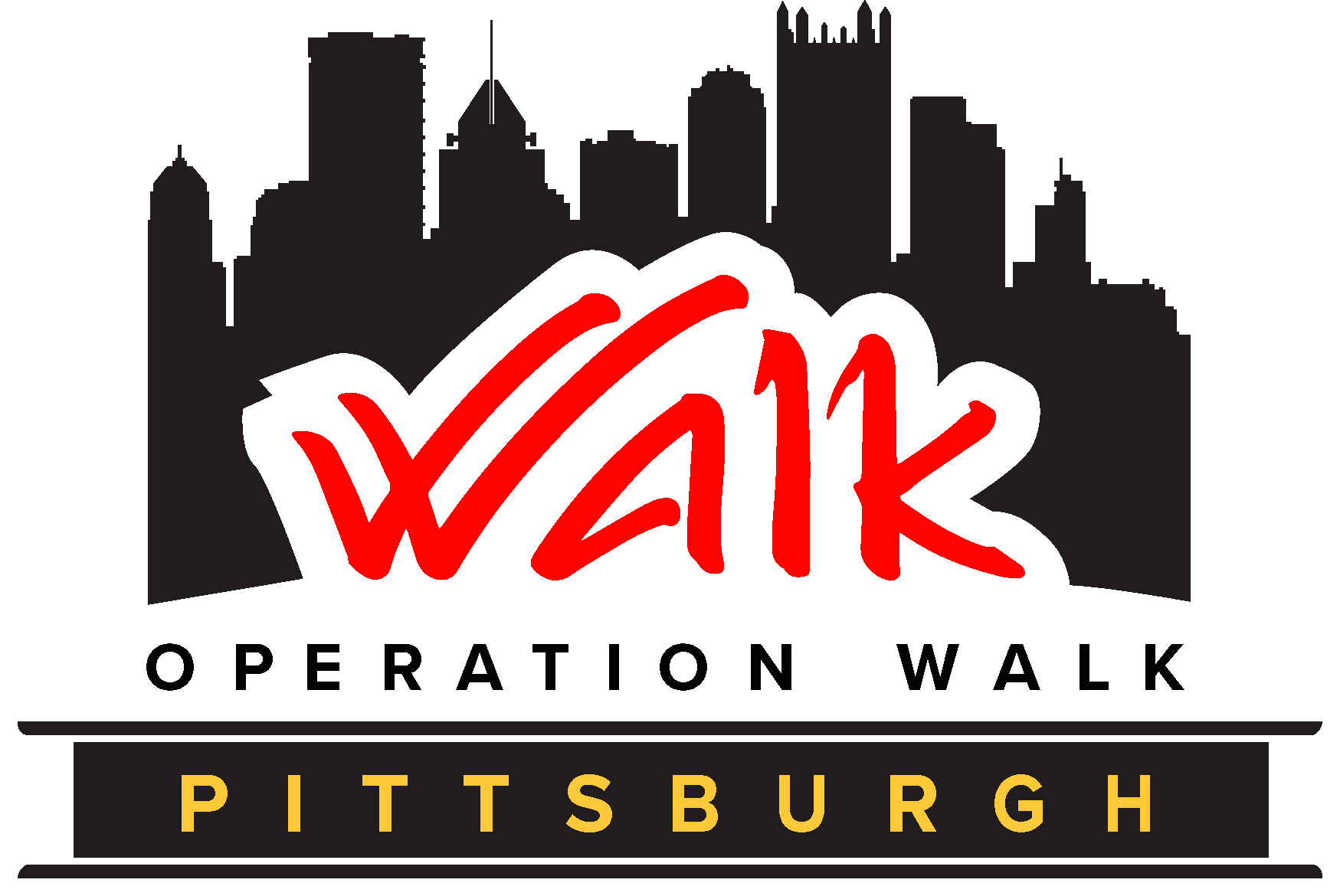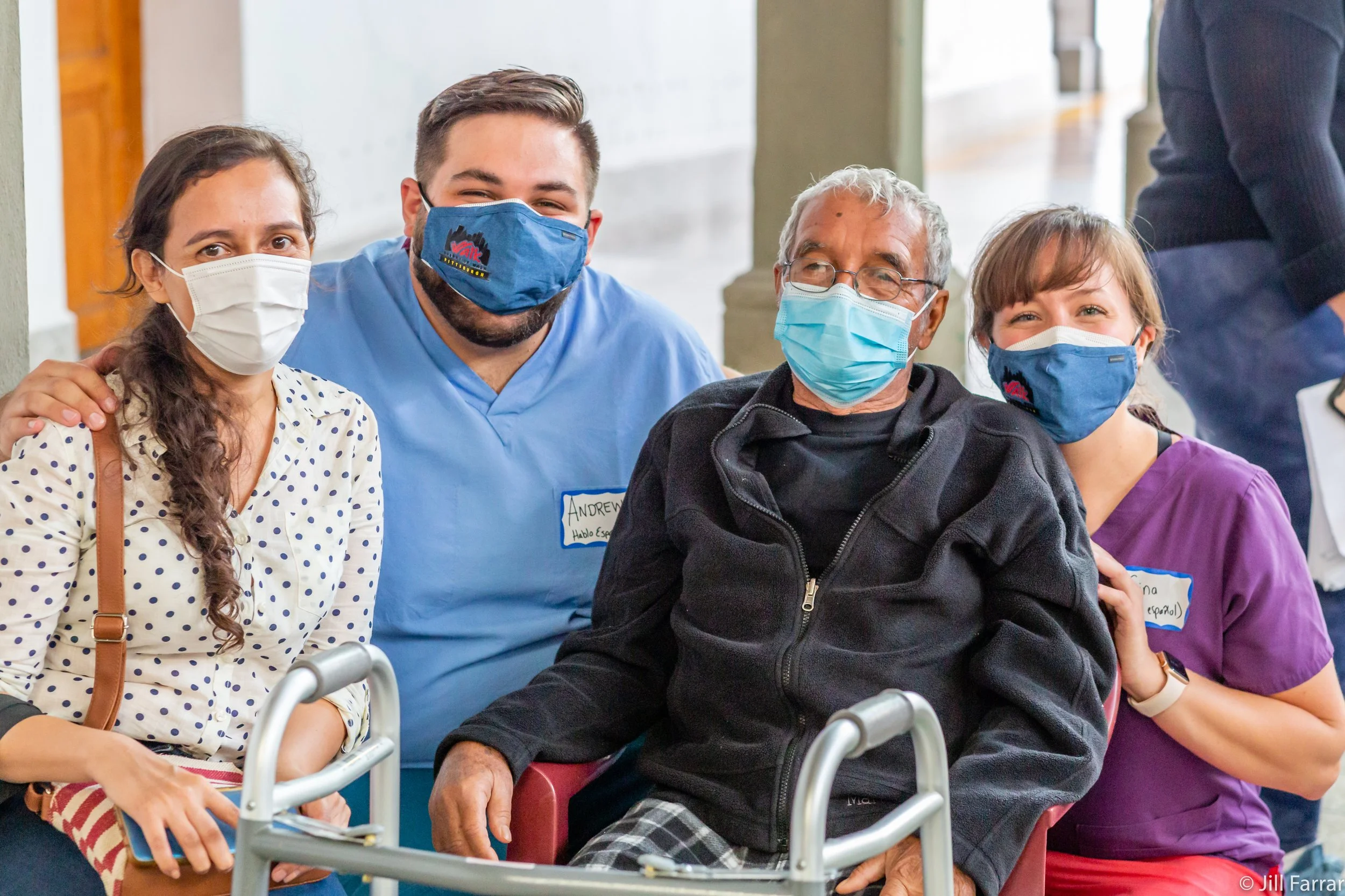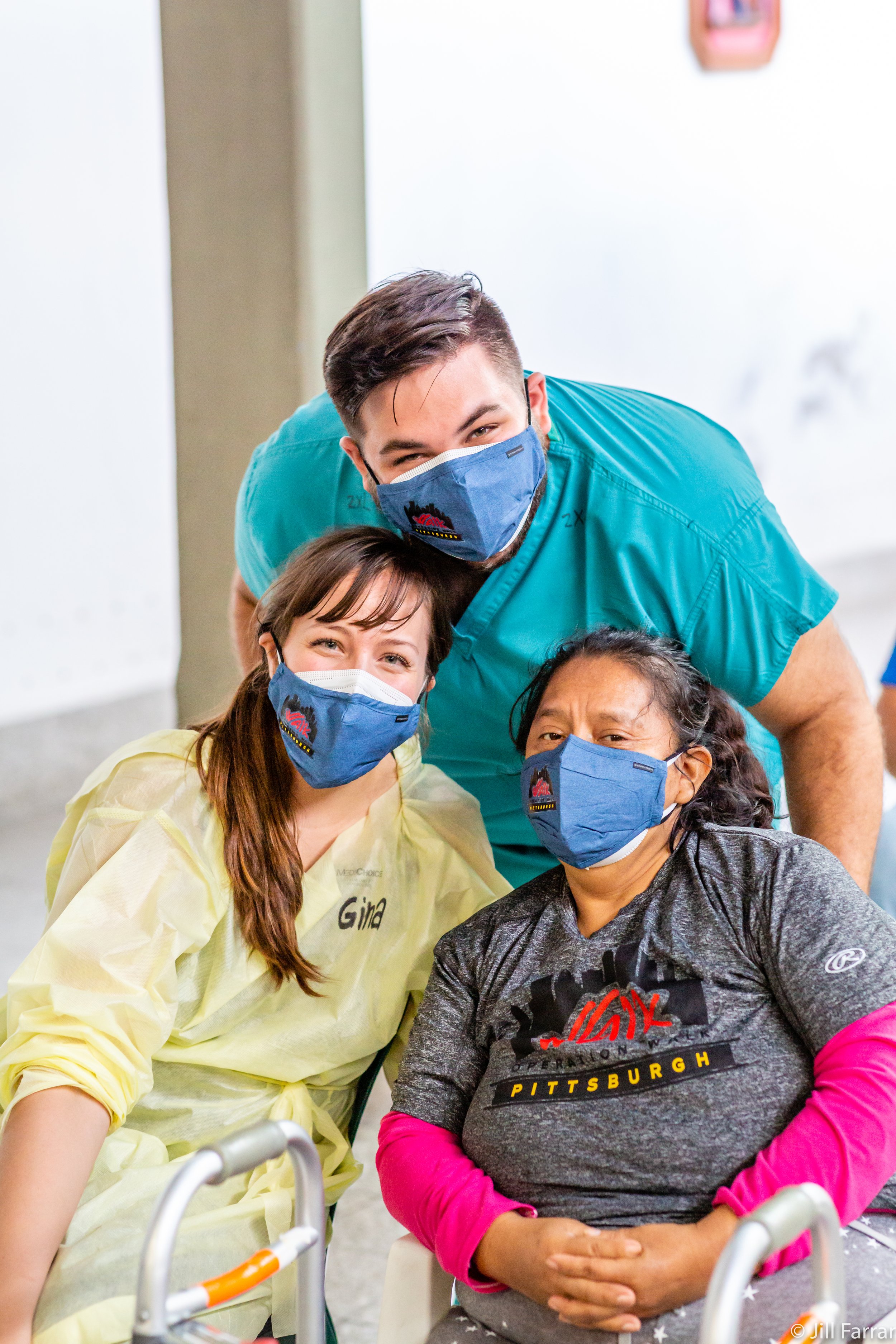Operation Walk Highlights the Role of Translators
Translators are often thought of as the glue between Operation Walk volunteers, host hospital staff, patients, and family members. Accurate interpretation and translation of materials, teaching, and communication of information is critical to patients’ surgical success, trust between stakeholders, and collaboration between teams. Translators work together throughout the patient pathway to best communicate how the patients are feeling, what the next steps are with recovery, and even asking what they are most looking forward to post-recovery. The role is so important that Operation Walk Pittsburgh now brings six to eight people who fill this role.
Two OpWalk volunteers, who have served as translators in previous missions, Gina Edwards and Andrew Sparks, shared their experience and what the Operation Walk Pittsburgh trips, patients, and team members have meant to them.
What does Op Walk mean to you?
ANDREW:
For me OpWalk is a recharge to my life. It is the week out of the year that I know the only thing that matters are the patients. It is so special to remove yourself from your stress and worries, which all become so trivial once you arrive in Guatemala. I think the best thing we can do in life is to connect with people, and that's what we do with the patients. It’s awesome to be a part of a team that has this goal to connect with people, and to accomplish this in one week is just such a blessing.
GINA:
To go to a country where people have very little and yet appreciate so much, and find so much joy in their life –– even when they're battling arthritis or a debilitating condition that renders them unable to the things they love –– to interact with people so resilient that they still find things to smile about –– I think this is the best way to get grounded back into what really is important in life. We have so much to be thankful for every single day.
What is your role as a translator?
ANDREW: My role as a translator on Operation Walk is really special because I get to act as a connector between the doctors, the nurses, the physical therapists - all those people that we bring on our team from the US - and the patients. We are there to facilitate their conversation and their understanding.
GINA:
We have the opportunity to use Spanish to connect with the patients on a deeper level which means that we get to learn about their lives and get to learn about all of the non-clinical stuff that is being impacted by the surgery that they're about to undertake, or have just undergone. I think it's a really special role because you get to form true relationships with the patients and convey really beautiful sentiments from the patients back to their doctors, their thankfulness and gratitude for the experience.
What made you want to learn a second language?
GINA:
When I went into high school and had to pick a language to study, I chose Spanish because I thought that it would be super useful, and that turned out to be really true. I decided to continue when I was in college studying Spanish because I found out it was a way to completely understand another culture in a different way. It eventually led me to, not only study abroad, but to keep going back to countries where Spanish was spoken so that I could keep getting better and find new ways to communicate with people that I otherwise would never have had the chance to meet.
ANDREW:
For me, I think learning a second language was an opportunity to do what I love most, which is connecting with people. I was lucky enough when I was younger to travel with my parents to other countries and experience the barriers that come whenever you don't speak a host country’s language, and I always wanted to be able to overcome that challenge and be able to connect with people. So I studied Spanish all throughout college, studied abroad in Spain, lived in Nicaragua, and continue to strive to master the language.
Can you elaborate on the relationships you’ve formed while on OpWalk?
ANDREW:
Operation Walk is really special. It reminds me of the same kind of energy I got from a club or organization in my high school. We don't really get to find that in adult life that much, so I think it's been really unique finding new and interesting people from all different walks of life that I wouldn't get to interact with otherwise. It has been really great to work with people who professionally do something that is so different from what my skill set is. You learn to appreciate one another for different skill sets really, which helps build these relationships and ultimately seeing and experiencing the changes that are happening. It's hard not to feel an especially intense relationship with the people that you're sharing that with because you're both experiencing one of the best weeks of your life together.
GINA:
One of the things that I think is truly unique about OpWalk is how quickly deep relationships can form. I think because of the nature of what we do on the trip and how much it impacts the patients lives no matter what role you play on the trip, whether it's clinical, whether you’re a humanitarian volunteer or physical therapist, in some way, you are touching someone's life and making it better. To be with a group of people whose sole purpose is to do that on a trip automatically means that you've met a really special set of individuals and so you start from a really interesting place. And then throughout the week, things that you see and experience together bring you even closer. I think there are few experiences in life where you replicate that and so to be a part of OpWalk mission can change your life.
Operation Walk Pittsburgh is still recruiting volunteers for its 2022 Travel Team. Are you a Spanish speaker and interested in traveling with us? The deadline to apply to Mission 2022 is Thursday, March 17th. To learn more about the trip and to apply, click here.






